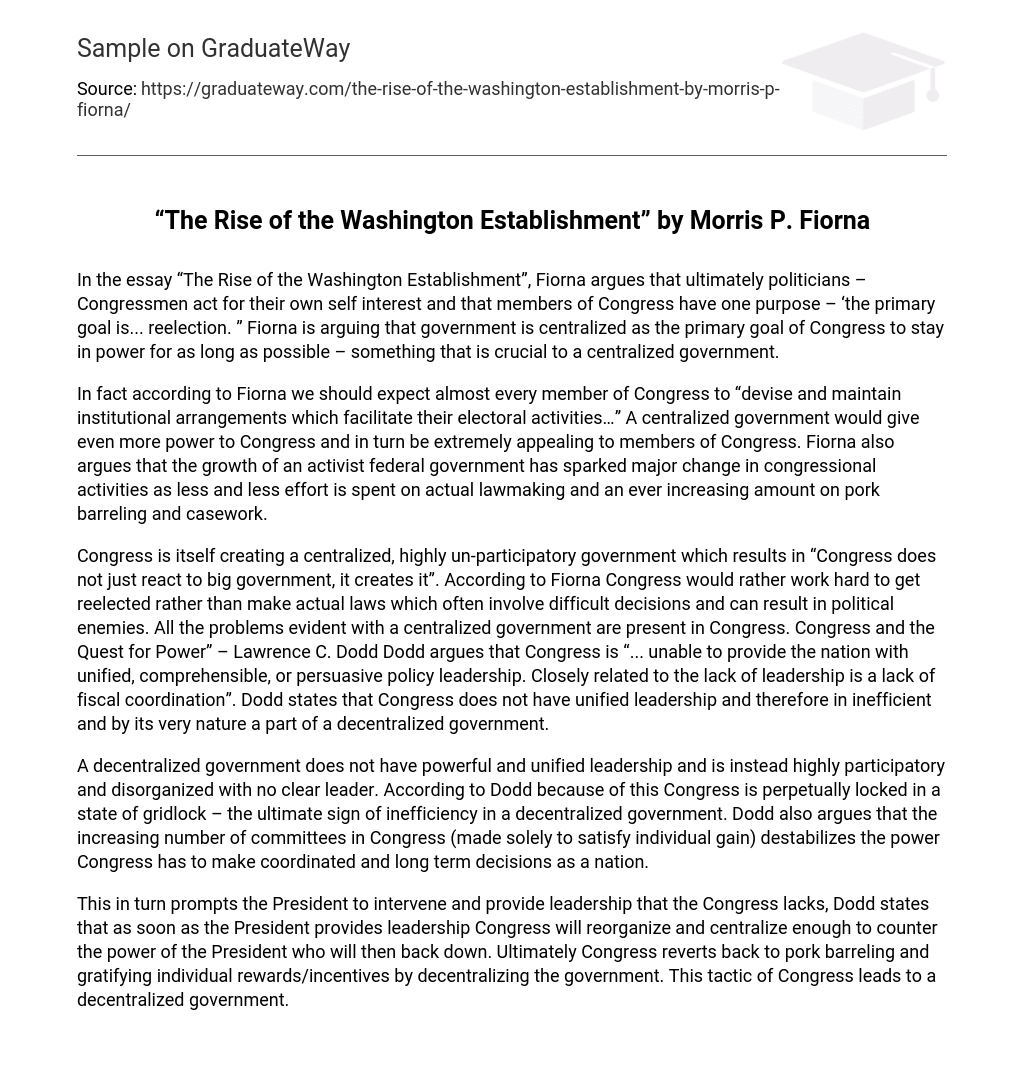In the essay “The Rise of the Washington Establishment”, Fiorna argues that ultimately politicians – Congressmen act for their own self interest and that members of Congress have one purpose – ‘the primary goal is… reelection. ” Fiorna is arguing that government is centralized as the primary goal of Congress to stay in power for as long as possible – something that is crucial to a centralized government.
In fact according to Fiorna we should expect almost every member of Congress to “devise and maintain institutional arrangements which facilitate their electoral activities…” A centralized government would give even more power to Congress and in turn be extremely appealing to members of Congress. Fiorna also argues that the growth of an activist federal government has sparked major change in congressional activities as less and less effort is spent on actual lawmaking and an ever increasing amount on pork barreling and casework.
Congress is itself creating a centralized, highly un-participatory government which results in “Congress does not just react to big government, it creates it”. According to Fiorna Congress would rather work hard to get reelected rather than make actual laws which often involve difficult decisions and can result in political enemies. All the problems evident with a centralized government are present in Congress. Congress and the Quest for Power” – Lawrence C. Dodd Dodd argues that Congress is “… unable to provide the nation with unified, comprehensible, or persuasive policy leadership. Closely related to the lack of leadership is a lack of fiscal coordination”. Dodd states that Congress does not have unified leadership and therefore in inefficient and by its very nature a part of a decentralized government.
A decentralized government does not have powerful and unified leadership and is instead highly participatory and disorganized with no clear leader. According to Dodd because of this Congress is perpetually locked in a state of gridlock – the ultimate sign of inefficiency in a decentralized government. Dodd also argues that the increasing number of committees in Congress (made solely to satisfy individual gain) destabilizes the power Congress has to make coordinated and long term decisions as a nation.
This in turn prompts the President to intervene and provide leadership that the Congress lacks, Dodd states that as soon as the President provides leadership Congress will reorganize and centralize enough to counter the power of the President who will then back down. Ultimately Congress reverts back to pork barreling and gratifying individual rewards/incentives by decentralizing the government. This tactic of Congress leads to a decentralized government.





